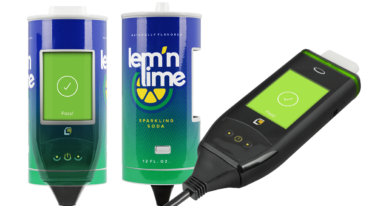Can You Drive After a DUI? Understanding Your Rights
“Can you drive after a DUI?” This might be the biggest question on your mind after a DUI arrest. Knowing your rights in the aftermath of a DUI is important, especially when driving is often essential for getting to work, taking kids to school, or getting to the grocery store.
While we encourage you to check with a professional DUI lawyer for your specific case in the state you live, this guide will explain what you can expect and options to consider that make this process a little less stressful.
DUI Consequences on Driving Privileges
The fallout from a DUI can be a lot to take in and varies with each case, as well as from state to state. Some of the most common consequences include fines ranging anywhere from $250 – $3000, DUI license suspension, mandatory community service, and even serving potential jail time. With each state having its own DUI laws, it’s very important to research the laws in your area. Understanding the penalties specific to your location is crucial. For example, Arizona has a minimum jail time of 10 days, fines of at least $1250, and a suspended license of at least 90 days.
It goes without saying that a DUI charge will also dramatically affect your ability to drive. But do they take your license after a DUI? In most cases, yes. Having your driver’s license suspended is typically immediate and can leave you relying on public transportation to take you where you need to go. Fortunately, depending on your state, you can apply for an interlock-restricted license, which allows you to drive your motor vehicle with an Ignition Interlock device (IID) installed.
Temporary DUI License Suspension vs. Permanent Revocation
After a DUI charge, your license will be temporarily suspended, preventing you from driving a motor vehicle for a period of time ranging anywhere from 90 days to several years. Your greatest chance to keep the ability to drive is to install an IID, however, each state has its own unique DUI laws pertaining to IID installation and use.
What is DUI probation? This is essentially a probationary period where, as long as you follow the terms agreed by the court, you can restore your license privileges. This period entails going through a DUI education program, installing an IID, facing a restricted driving privilege, and complying with other details in your probation.
Getting your driver’s license permanently revoked happens when you’ve had multiple DUI convictions, a higher BAC level, or instances where serious harm or death is involved. It includes the permanent withdrawal of your driver’s license, indicating a serious violation due to being considered a risk to public highway safety.
Now, you may be wondering: How do I get my license back after a DUI? Preventing multiple DUI offenses and following your probationary guidelines will help make sure you’ll never have to go through a permanent revocation.
Rehabilitation Programs and Driving Privileges
While not always mandatory, participating in rehabilitation programs can significantly impact your chances of regaining driving privileges. These programs, which can include counseling and educational courses, provide an opportunity to address underlying issues contributing to alcohol-related offenses.
Completing rehabilitation programs can be favorable by the court and relevant authorities when considering reinstating your suspended or revoked license. Additionally, successfully adhering to IID requirements, often mandated in DUI cases, can be a positive factor in evaluating eligibility for license reinstatement.
Read more from American Addiction Centers here.
Alternatives such as restricted or hardship licenses, allowing driving under specific conditions, may also be available. Showing compliance with court-ordered probation terms and maintaining a clean record during the suspension period can strengthen your case for returning your driving privileges.
Navigating Legal Restrictions Post-DUI
As a quick review, here are some of your immediate consequences after getting a DUI.
- License suspension or revocation
- Fines
- Jail Time
- Community Service
- Education Programs
- Having an IID installed
To help you through this stressful period, hiring a DUI attorney can be something to consider to help you navigate your legal restrictions. They can fight on your behalf and ensure you get all the important details in your DUI case. Plus, sometimes, they can help reduce your DUI charge or probation time to help you reclaim driving freedom sooner.
The Role of Ignition Interlock Devices
In many jurisdictions, installing IIDs is mandatory in reinstating your driving privileges. These devices act as a regulatory measure and serve as one of the most valuable tools to demonstrate your commitment to safe and sober driving.
Reinstating Driving Privileges with Ignition Interlock Devices
IIDs help reinstate your driving privileges by preventing your car from starting if your breath registers a BAC above a predetermined limit. It shows literal proof of your sober driving for your case. Complying with IID requirements is essential to move you through this restricted period faster.
Compliance and Monitoring
Regular device monitoring is typically mandated, with reports sent to relevant authorities to ensure you adhere to the rules and drive sober. Successfully complying with the IID program can significantly help your case and prove you’re capable of driving responsibly.
Having an IID acts as a deterrent, helping you avoid repeat DUI offenses. The knowledge that the device will prevent any attempt to drive under the influence encourages responsible behavior and underscores the commitment to preventing future incidents.
If it wasn’t already mandated, consider filling out this quick form to see your eligibility to install an IID in your car.
Start Reclaiming Your Driving Privileges
The journey to reclaiming your driving privileges after a DUI is complex but entirely achievable. By laying out the consequences, nuances of suspension and revocation, rehabilitation opportunities, legal restrictions, and the role of Ignition Interlock Devices, we hope you feel confident in making informed decisions and getting back to living your life without having driving restrictions.
Make sure you explore these options carefully to mitigate your consequences and get back on the road with complete freedom. And if you have any questions, feel free to reach out to our team and schedule an IID installation appointment.
We’re here to support you on this journey.
Sources:
1. Driving Laws. DUI Laws by State. https://dui.drivinglaws.org/resources/state-dui-laws.htm
2. Governors Highway Safety Association. Alcohol Impaired Driving. https://www.ghsa.org/state-laws/issues/alcohol%20impaired%20driving
3. NCSL. State Ignition Interlock Laws. https://www.ncsl.org/transportation/state-ignition-interlock-laws
4. American Addicition Centers. DUI & DWI Alcohol Treatment Programs. https://americanaddictioncenters.org/alcoholism-treatment/dui5. CDC. What Works: Strategies to Reduce or Prevent Alcohol-Impaired Driving. https://www.cdc.gov/transportationsafety/impaired_driving/strategies.html
The content provided in our blog posts is for informational purposes only and should not be construed as legal advice. Low Cost Interlock does not offer legal counsel. DUI laws vary by jurisdiction, and the information presented may not be applicable to your specific situation. Always consult with a legal professional for guidance tailored to your situation and local laws. Reliance on any information provided in our blog posts is at your own risk.


